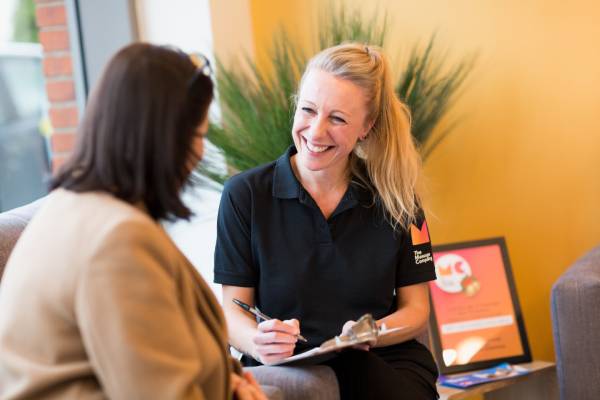[The lockdowns made self-care difficult for many, but there are some habits we learned that are worth keeping.]
Over the past two years, the way we live our lives has been dictated by our health. That means on this side of the pandemic, we’re more conscious than ever about our wellbeing. Public health messaging in 2020 and 2021 was based largely on fear, and the world’s mental health declined sharply with the worry and loneliness of lockdown. For a lot of people, the restrictions also led to poor nutrition and a lack of exercise.
We’re out of all legal restrictions now, but we’re also facing a cost-of-living crisis, armed conflict in Europe, and ongoing uncertainty. There are new worries to be had — new reasons people might forget to look after themselves.
The good news is that 30% of Britons have been dedicating more time to their wellness since the arrival of the Covid lockdowns, and 84% say that the country needs greater focus on self-care.
Health, beauty, and exercise were among the few pursuits that were available throughout the Covid Crisis, and many people are maintaining those positive practices now that restrictions have been lifted.
Here are some habits from the lockdowns that you can (and should) keep.
Hobbies
Many people discovered new pastimes during the pandemic, especially things like crafts and baking. Hobbies reduce stress by helping you focus on something you enjoy for its own sake, as well as carving out time where you think about and do something purely because you want to, not because you have to.
They’re also something to look forward to, and a ‘disciplined’ hobby schedule, where you protect and ring-fence a certain amount of time every week, makes sure that you dedicate time to yourself.
Now that we’re completely free to gather, there’s a social aspect to hobbies too. When you spend time with people with common interests, it can work wonders for your mental and physical health.
Learning new skills also has a very positive impact on your self-esteem.
‘Me’ time
Self-care is not self-indulgence — more and more people understand that. A lot of people had time on their hands as a result of the pandemic, and it allowed them to try out the self-care that they’d previously neglected or put off.
Me-time can be as simple as reading a book in a bubble bath, going for a regular massage, getting a treatment, or having a day watching films from under a duvet. It helps you recharge, reset, and face the world fresh.
Interestingly, one company that has gathered a lot of attention is The Massage Company. It’s easy to see why — they have brought massage to the high street, with a subscription model to help people look after their mental health, circulation, mobility, sleep, and sense of wellbeing by making self-care a routine part of a better and balanced quality of life. Their centres are also approachable and accessible. There’s no ‘spa’ aesthetic that could look intimidating to new visitors, they’re very clearly gender-neutral, and the options for massage treatments are suitable for anyone — workers with sore backs, sportspeople with muscle and joint pain, first-timers who don’t know what they want from a massage, pregnant women who need to feel safe and comfortable, or simply anyone experiencing stress.
Improving your home working setup
Most of us were not prepared for the sudden shift to remote work, but it was something that we quickly got used to, to the point that many employers feel the need to offer at least a hybrid working option to be an attractive prospect for job hunters.
Those who are continuing to work from home should think about their setup. Sitting in the wrong sort of chair for hours can lead to fatigue and pain, a screen in the wrong position affects your posture, and insufficient light can strain your eyes.
An investment in proper equipment and a pleasant, comfortable work environment will pay dividends in the sustainability of your working pattern, as well as your mental and physical health.
Keeping a work-life balance
Just as the physical separation between home and the workplace has dissolved for many, so has the time division. Once, the office was the workplace, the home the place for family, chores, and leisure, and a commute was a buffer between them. Now it’s less certain when the working day starts and stops, and it can take place almost anywhere. Aside from the risk of overwork and burnout, the blending of home and work can make it very difficult to switch off, which can affect sleep quality and reduce rest time. Consider something simple like a walk at the start and the end of the homeworking day to reset your mind, and ease yourself in and out of the working day.


